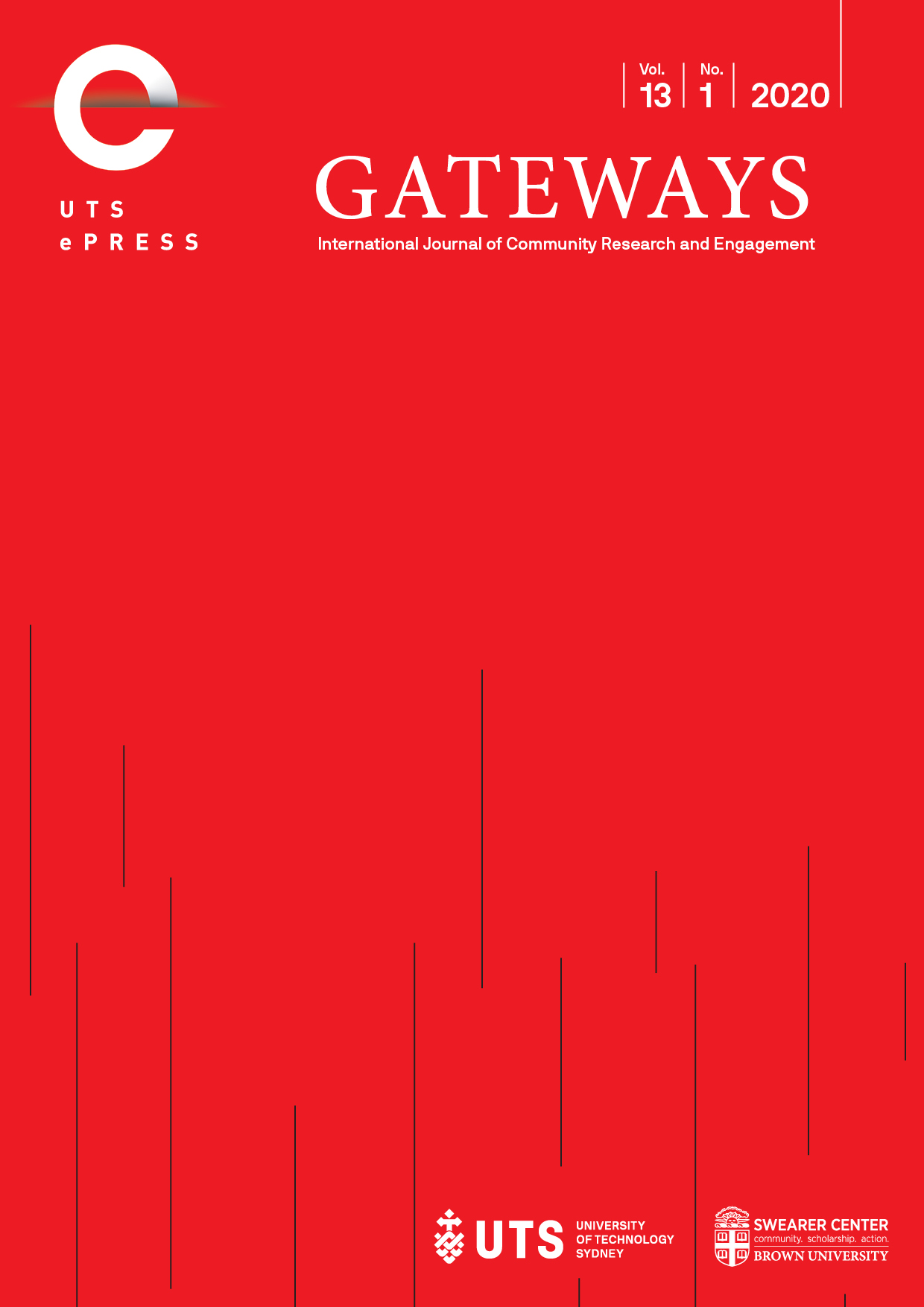Assessing excellence in community-based research: Lessons from research with Syrian refugee newcomers
Main Article Content
Abstract
In this article, we critically reflect on three Syrian refugee research projects that were conducted simultaneously in Ontario, Canada, in order to: (1) strengthen the community system of support for refugee newcomers; (2) address social isolation of Syrian parents and seniors; and (3) promote wellbeing of Syrian youth. Our purpose in this article is to demonstrate a tangible way of assessing research projects which claim to be community-based, and in so doing gain a deeper understanding of how research can be a means of contributing to refugee newcomer resilience. Our assessment of the three studies was done through the reflective lens of the Community Based Research Excellence Tool (CBRET). CBRET is a reflective tool designed to assess the quality and impact of community-based research projects, considering the six domains of community-driven, participation, rigour, knowledge mobilisation, community mobilisation and societal impact. Our assessment produced four main lessons. The first two lessons point to the benefit of holistic emphasis on the six categories covered in the CBRET tool, and to adaptability in determining corresponding indicators when using CBRET. The last two lessons suggest that research can be pursued in such a way that reinforces the rescue story and promotes the safety of people who arrive as refugees. Our lessons suggest that both the findings and the process of research can be interventions towards social change. The diversity of the three case examples also demonstrates that these lessons can be applied to projects which focus on both individual-level and community-level outcomes.
Article Details
Issue
Section
Authors who submit articles to this journal from 31st March 2014 for publication, agree to the following terms:
a) Authors retain copyright and grant the journal right of first publication with the work simultaneously licensed under a Creative Commons Attribution License that allows others to share and adapt the work with an acknowledgement of the work's authorship and initial publication in this journal.
b) Authors are able to enter into separate, additional contractual arrangements for the non-exclusive distribution of the journal's published version of the work (e.g., post it to an institutional repository or publish it in a book), with an acknowledgement of its initial publication in this journal.
c) Authors are permitted and encouraged to post their work online (e.g., in institutional repositories or on their website) prior to and during the submission process, as it can lead to productive exchanges, as well as earlier and greater citation of published work (See The Open Access Citation Advantage Service). Where authors include such a work in an institutional repository or on their website (ie. a copy of a work which has been published in a UTS ePRESS journal, or a pre-print or post-print version of that work), we request that they include a statement that acknowledges the UTS ePRESS publication including the name of the journal, the volume number and a web-link to the journal item.
d) Authors should be aware that the Creative Commons Attribution (CC-BY) License permits readers to share (copy and redistribute the work in any medium or format) and adapt (remix, transform, and build upon the work) for any purpose, even commercially, provided they also give appropriate credit to the work, provide a link to the license, and indicate if changes were made. They may do these things in any reasonable manner, but not in any way that suggests you or your publisher endorses their use.
For Volume 6 (2013) and before, the following copyright applied:
Articles published by UTSePress are protected by copyright which is retained by the authors who assert their moral rights. Authors control translation and reproduction rights to their works published by UTSePress. UTSePress publications are copyright and all rights are reserved worldwide. Downloads of specific portions of them are permitted for personal use only, not for commercial use or resale. Permissions to reprint or use any materials should be directed to UTSePress.
